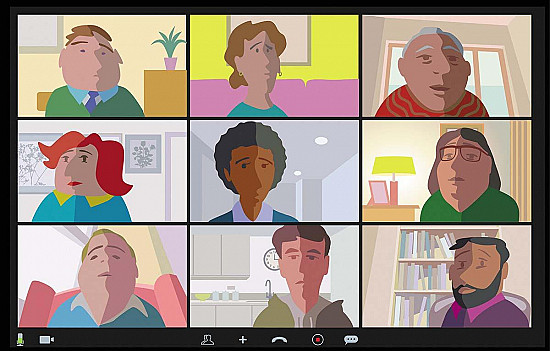6 things to do when heading for the hospital
Thorough planning will help you avoid hassles and confusion.
- Reviewed by Anthony L. Komaroff, MD, Editor in Chief, Harvard Health Letter; Editorial Advisory Board Member, Harvard Health Publishing

You don't always get to prepare for a prolonged hospital stay. But when you know you'll be hospitalized for a few days — such as for an elective procedure — do more than just pack a small bag before you go. Here are six tasks for your to-do list.
1. Print important documents
Your hospital might not have current information in your file, even if you've been there before and your doctor is affiliated with the facility. To be proactive, pack a few documents (print them out in case hospital staffers don't have the time to upload the information in electronic form).
One document should be a list of your emergency contacts, chronic conditions, and medications (including supplements) and their doses. This is essential information that doctors use to make decisions about your care.
Another document should be a copy of your advance directive, which might include
- a living will detailing the kind of medical care you'd like if you're unable to make your own decisions
- a health care proxy form designating who'll make health care decisions if you can't (it's especially helpful when decisions aren't black and white)
- a POLST (physician orders for life-sustaining treatment) form signed by your clinician; this option for people with serious medical conditions turns your health care preferences into a medical order that must be followed.
If you need an advance directive, download the forms for free from your state. The AARP offers handy links (/freepad). Some forms must be witnessed or notarized, preferably before a hospital stay.
2. Alert your health care proxy
Tell your health care proxy when and why you're going to the hospital, and what should or shouldn't be done if you can't make decisions. Your proxy can only help you if he or she knows what you want.
"Often, when we have to call the proxy, the person says, 'I don't know, I've never talked to my friend or family member about it.' Those situations can be tough for health care proxies, because sometimes we're asking them to make decisions about high-risk treatments," says Dr. Jose F. Figueroa, a hospitalist at Harvard-affiliated Brigham and Women's Hospital, and a health policy and management researcher at the Harvard T.H. Chan School of Public Health.
3. Pack a little extra
Planned short hospital stays sometimes turn into longer ones or lead to a stay in a rehabilitation facility. That could leave you without enough clothes, electronic devices, or device chargers. Dr. Figueroa recommends either packing for such an event, or packing an extra bag to leave at home and arranging for a friend to deliver it if necessary.
4. Establish a toothbrushing plan
Ask a friend, family member, or your nurse to help ensure that your teeth are brushed daily. "Bacteria in the mouth sometimes get into the lungs and cause pneumonia. Good oral hygiene, including toothbrushing, can lower the risk of pneumonia by decreasing the amount of bacteria on the teeth and in the mouth. We have evidence about this in patients in the intensive care unit, and it's reasonable to think it applies to all patients," says Dr. Michael Klompas, a researcher and infectious disease specialist at Brigham and Women's Hospital.
5. Get a discharge buddy
When it's time to leave the hospital, your nurse will provide you with instructions about your care. "But it's a vulnerable time to be getting a lot of information, such as details about new medications, old medications, and when you're supposed to see a doctor again. Being confused about what to do next can lead to medication mistakes and hospital read-missions," Dr. Figueroa says.
Before your stay, ask a friend to be there at discharge time — in person or on the phone — to jot down details and ask questions. "Have the friend ask about medication changes you should be aware of, signs to be worried about, when to call the doctor, and whether you have any new appointments set up or need to make them," Dr. Figueroa advises.
6. Arrange a ride home
You may have a way to get to the hospital, but many people forget about the ride home. "We never advise driving your-self home. You might be on medications that affect your ability to concentrate, or you might be confused or weak after a hospital stay," Dr. Figueroa says. If you don't have a friend who can take you home, ask your doctor's office, religious organization, or senior center about ride opportunities. If you can afford it, hire a health aide to drive you. Just make sure there's someone to help get you inside your home and settled. A little advance planning will go a long way.
Image: © andreswd/Getty Images
About the Author

Heidi Godman, Managing Director
About the Reviewer

Anthony L. Komaroff, MD, Editor in Chief, Harvard Health Letter; Editorial Advisory Board Member, Harvard Health Publishing
Disclaimer:
As a service to our readers, Harvard Health Publishing provides access to our library of archived content. Please note the date of last review or update on all articles.
No content on this site, regardless of date, should ever be used as a substitute for direct medical advice from your doctor or other qualified clinician.
















